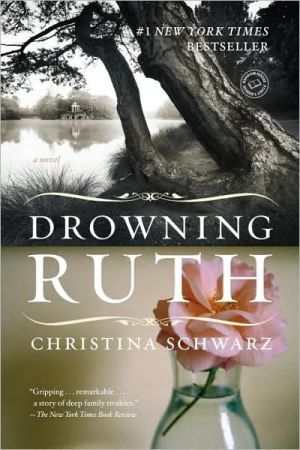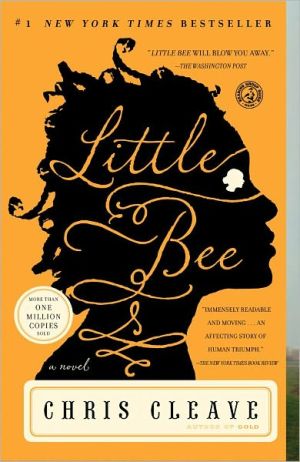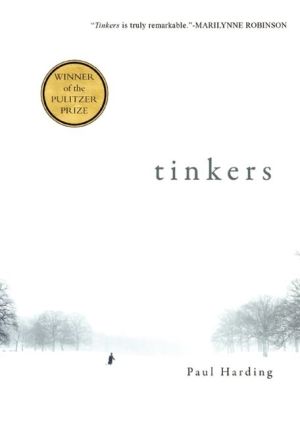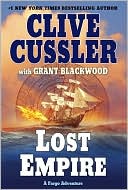Drowning Ruth
“POWERFUL . . . SUSPENSEFUL . . . RICHLY TEXTURED . . . [A] CHILLING, PRECOCIOUSLY GOOD START TO A BRIGHT NEW NOVELIST’S CAREER.”\ –The New York Times\ \ “[A] gripping psychological thriller . . . In the winter of 1919, a young mother named Mathilda Neumann drowns beneath the ice of a rural Wisconsin lake. The shock of her death dramatically changes the lives of her daughter, troubled sister, and husband. . . . Told in the voices of several of the main characters and skipping back and forth...
Search in google:
Deftly written and emotionally powerful, Drowning Ruth is a stunning portrait of the ties that bind sisters together and the forces that tear them apart, of the dangers of keeping secrets and the explosive repercussions when they are exposed. A mesmerizing and achingly beautiful debut.Winter, 1919. Amanda Starkey spends her days nursing soldiers wounded in the Great War. Finding herself suddenly overwhelmed, she flees Milwaukee and retreats to her family's farm on Nagawaukee Lake, seeking comfort with her younger sister, Mathilda, and three-year-old niece, Ruth. But very soon, Amanda comes to see that her old home is no refuge--she has carried her troubles with her. On one terrible night almost a year later, Amanda loses nearly everything that is dearest to her when her sister mysteriously disappears and is later found drowned beneath the ice that covers the lake. When Mathilda's husband comes home from the war, wounded and troubled himself, he finds that Amanda has taken charge of Ruth and the farm, assuming her responsibility with a frightening intensity. Wry and guarded, Amanda tells the story of her family in careful doses, as anxious to hide from herself as from us the secrets of her own past and of that night.Ruth, haunted by her own memory of that fateful night, grows up under the watchful eye of her prickly and possessive aunt and gradually becomes aware of the odd events of her childhood. As she tells her own story with increasing clarity, she reveals the mounting toll that her aunt's secrets exact from her family and everyone around her, until the heartrending truth is uncovered.Guiding us through the lives of the Starkey women, Christina Schwarz's first novel shows her compassion and a unique understanding of the American landscape and the people who live on it.Library JournalSecrets unspoken for years crowd the pages of Christina Schwarz's DROWNING RUTH (Ballantine. 2001. ISBN 0-345-43910-4. pap. $14). In 1919, after nursing wounded soldiers, an exhausted Amanda comes to live with her sister Mathilda and niece Ruth at Nagawaukee Lake. Tragedy ensues, and Amanda becomes Ruth's caretaker. Expertly weaving the storytelling among various voices, this debut is a wonderful novel about repressed memories and lost chances. Copyright 2004 Reed Business Information.
Chapter One - Ruth remembered drowning.\ “That’s impossible,” Aunt Amanda said. “It must have been a dream.”\ But Ruth maintained that she had drowned, insisted on it for years, even after she should have known better. Amanda Of course I lied to Ruth. She was only a child. What should I have said? That her mother had been reckless? That I’d had to rescue her, give her new life, bring her up as my own? There are things children are not meant to know.\ I suppose people will say it was my fault, that if I’d not gone home that March in 1919, Mathilda, my only sister, would not be dead. But I did go home. The way I saw it, I hadn’t any choice.\ “March 27, 1919.” That’s a good place to begin. That’s what I wrote in the top right corner of the page. “Dear Mattie.” The pen shook as I raised it, splattering ink. “March 27, 1919,” I wrote on a fresh sheet. “Dear Mattie.”\ In the end, I didn’t bother to write. I knew I would be welcome. After all, Mattie had been begging me to come home for months. And what could I say? I had no explanation. No explanation but the truth, and I certainly didn’t want to tell that.\ The truth was that the hospital had asked me to leave. Not permanently, of course.\ “Of course, we don’t want you to go permanently, Miss Starkey,” Dr. Nichols said. It wasn’t clear whom he meant by “we,” since he and I were the only ones in the office. It made me nervous know- ing there were others who had talked about me, perhaps whispering in the hallways, ducking around corners when they saw me coming. They probably gathered in this very office, sipped coffee, shook their heads and tut-tutted me. Who were they?\ Dr. Nichols moved some papers around on his desk. He did not look at me. “When this is over . . .” He cleared his throat. “When you’re yourself again, then we’ll reconsider.”\ He was referring to my hallucinations, I believe, although it may have been the fainting or even the accidents. He studied the desktop for a moment and then sighed, saying almost kindly, “You’ll feel much better away from this stink, believe me.”\ There was a stink in the hospital. A literal stink of gangre- nous flesh and vomit, of ammonia and burnt oatmeal and camphor, of urine and feces. But a nurse gets used to the smells and the screams, and the sight of the men missing pieces of themselves.\ And I was a brilliant nurse. I had the touch; everybody said so. The men worshiped me. Those with faces lifted them toward me when I bent over their beds. Those with arms held them out.\ I loved being an angel. But I had to give it up.\ Dr. Nichols had a point. Somehow, I had lost control. One morning I woke up sure, absolutely positive, that my legs had been sawn from my trunk, and although I quickly realized that I had only been dreaming—my legs were right there, two ridges under the blanket—I couldn’t move them, couldn’t rise no matter how I tried. My roommate, Eliza Fox, had to pull me out of bed. Another time, I’m ashamed to say, I actually fainted across a soldier’s chest while giving him a sponge bath.\ Several times I had to run from the wards to vomit. My insides spewed out every morning, into bedpans and janitors’ buckets and hastily twisted newspaper cones and the snowdrift behind the hydrangea hedge. Twice I lost the hearing in my left ear, and once I spent four hours sitting in the stairwell, waiting for my sight to return. Syringes flew out to stab my arms; glass vials shattered in my hands; file drawers pinched the tips of my fingers.\ I forgot soldiers’ names and the purpose of errands. Three days in a row I locked myself out of the room I shared with Eliza. And always I was so tired, so very tired, that I simply could not stay awake, no matter how often I splashed water on my face or how much black coffee I drank. Finally, I surrendered and fashioned myself a nest among the towels in the supply room. I slept there every afternoon from one-thirty to two until the day Ward F ran out of soap, and Frances Patterson was sent to get some. Altogether, I had to admit they were right—I was beginning to make a better patient than a nurse. My body had got the better of me and could no longer be trusted. To tell the truth, I didn’t know myself anymore.\ And so I agreed to go home, not to the Milwaukee boardinghouse full of unmarried nurses where Eliza and I had carefully divided the freezing, mustard-colored room into her side and my side, but back to the farm where I had grown up, where the snowy hills were white as bleached linen and where my sister rocked her little girl to sleep beside the kitchen stove while she waited for her husband to come back from the war. I knew that, at home where I belonged, I could set myself right again.\ Outside the train station, I drew the city’s breath, yeasty from the breweries and bittersweet from the chocolate factory, into my lungs and felt better already. My grip on my bag was tight. I wasn’t late or excessively early. And now, for the first time in weeks, I was hungry, ravenous, in fact. I went into the station and stopped at a counter to buy myself a bag of peanuts with extra salt and a cup of coffee that didn’t burn my tongue. When I’d finished the nuts, I was still hungry.\ “Would you wrap half a ham salad?” I said. “No, better make it a whole. And some of that chicken. And maybe a piece of pie. The cherry, please.”\ Someone down the counter was drinking a chocolate milkshake that looked awfully good, and I was tempted to order one of those.\ “That’s what I like,” the counterman said, punching numbers into the register, “a woman who can eat.”\ So I changed my mind about the milkshake. As I was paying my bill, they called my train.\ “One way, miss? Goin’ home?” the conductor asked, steadying himself with his hip along the seat in front of me.\ I nearly began to explain that it wasn’t right, really, to consider it home any longer, even though legally the farm was half mine. Really it belonged to my sister now, since she lived there, had a family there, and I was just going back for a restorative visit because somehow my body had taken on a life of its own. I wanted to confess that I’d been banished because I had failed as a nurse, because no one, including me, believed that I could coax soldiers back into proper shape when I was such a mess myself. But it isn’t in me to say such things out loud.\ “That’s right,” I said.\ He winked. “Tickets!” he bawled and lurched away down the swaying car.\ Spring meant even less in the country than it did in the city that year, and by the time we pulled up to the icy little platform in Nagawaukee, the sky was heavy with unfallen snow. The wind bit at my face, so that I had to duck my head. I watched the toes of my boots as I stepped down the slick platform stairs and picked my way over the snow that drifted across the street in long pulls like taffy. My steps took me one, two, three buildings down from the platform where I stopped at the door of Heinzelman’s Bait and Tackle—“A Dozen Grubs for a Penny.” I went in.\ The bell over the door jingled, and the coals in the corner stove gave an answering glow to the sudden draft. Then the curtains behind the counter parted, and Mary Louise Lindgren emerged from the back room. She smiled when she saw me, beamed, you could say, and wiped her hands on her apron front in that nervous way she had, as she hurried toward me.\ “Mandy! What are you doing home?” She put her hands on my shoulders, pressed her cheek against mine. “Ooh, you’re frozen, a block of ice!” She held her warm palms to my face for a moment and then grabbed hold of my wrist and gave it a little tug without pausing to let me answer her question. “Come over near the stove. I can’t believe it, just can’t believe it’s you! I wondered—when I heard the bell—I wondered who would be coming in at this hour, and I thought, It’s probably Harry Stoltz, but, of course, it couldn’t have been, because he’s over in Watertown, and then I thought . . .”\ She would have gone on about what she’d supposed and what she’d thought after that and what she’d done next, but I interrupted. “I’m taking a vacation,” I said, “a rest.” It was true, in a way.\ “Mathilda is going to be so happy!” She frowned. “But why didn’t she tell me? She was in here only two days ago.”\ “Mattie doesn’t know.”\ That was all I needed to say, because she broke in immediately. “A surprise! How wonderful! And, Mandy,” she leaned toward me and lowered her voice discreetly, though there was no one else in the shop to hear, “I have a surprise too.” She waited until she was sure she had my full attention. “George and I may have a little one.” She patted her apron front significantly.\ I didn’t know what to say to this. Mary Louise had been pregnant every one of the five years since she and George Lindgren had been married, and she had lost all five of those babies, each when it was several months along. A person ought to know when to give up, I thought; a person ought not to court disaster. At the very least, she should be wary. She should hold some of her feelings back. But Mary Louise was incapable of reticence, and she didn’t have the advantage of scientific training, the way I did. She always acted as if nothing could possibly go wrong, as if this child’s birth were written in the stars, and she need only wait for the blessed event. Only her hands hovering protectively over her belly be- trayed the worry underneath. What she thought was growing could so easily amount to nothing at all.\ “It feels different this time,” she said defensively, although I hadn’t expressed my concern.\ “I hope so.” Really, what else could I have said?\ We agreed then that I should be on my way while there was still light. A few steps from the store, knowing she would be watch- ing, I turned to look back. She held up her hand and, as I mirrored her, I thought of the time when we were just alike, Mary Louise and I, both happy to be finished with school for the day, running and sliding along this very road, scanning the tower of St. Michael’s for the lantern light that we believed signaled the escape of a lunatic, talking about why Netty Klefstaad wasn’t speaking to Ramona Mueller, and how we knew Bobby Weiss had cheated at spelling, and what to do with the penny after you’d rubbed it on a wart, and sometimes singing.\ Of course, that was before Mattie. By the time Mattie was old enough to go to school, Mary Louise and I walked this same road decorously, with our books squeezed tight against our chests, but Mathilda ran ahead, pitching herself into snowbanks, as we had once done. “Watch me, Amanda! Watch, Mary Louise!” she’d call. Or she would linger behind to study the snowflakes patterning her mitten and summon me back imperiously. “Mandy, look at this one! Hurry up, before it melts!”
\ Library JournalSecrets unspoken for years crowd the pages of Christina Schwarz's DROWNING RUTH (Ballantine. 2001. ISBN 0-345-43910-4. pap. $14). In 1919, after nursing wounded soldiers, an exhausted Amanda comes to live with her sister Mathilda and niece Ruth at Nagawaukee Lake. Tragedy ensues, and Amanda becomes Ruth's caretaker. Expertly weaving the storytelling among various voices, this debut is a wonderful novel about repressed memories and lost chances. Copyright 2004 Reed Business Information.\ \ \ \ \ School Library JournalYA-A wonderfully constructed gothic suspense novel set on a stark Wisconsin farm in 1919. The story goes backward and forward in time and is told by Amanda, her niece Ruth, and an omniscient narrator. The ties that bind the two women are as fragile as they are fierce and have their origin in the relationship of two sisters, Amanda and her sister Mattie, Ruth's mother. The narrative begins with Amanda as she recounts her childhood and the responsibility she came to feel for her younger sister and the parents who favored her younger sibling. Amanda finally wrests herself away from home to become a nurse, but her independence is short-lived. Overwhelmed and sickened by the care of the wounded, and heartsick over the love of a married man, she suffers a nervous breakdown and seeks solace by returning to the farm to help Mattie care for her tiny daughter as they await the return of Mattie's husband from World War I. But tragedy follows with Mattie's mysterious drowning during a winter blizzard and guilty lies soon engulf Amanda and threaten to change the lives of several others in the small rural community. A compelling complex tale of psychological mystery and maddeningly destructive provincial attitudes.-Jackie Gropman, Kings Park Library, Fairfax, VA Copyright 2000 Cahners Business Information.\ \ \ Janet Maslin[A] suspenseful, unusually well-crafted first novel . . . a richly textured book with an enveloping sense of the sisters' Wisconsin farm life . . . [S]he fuses this suspense with such strong period detail that Drowning Ruth creates a visceral sense of the forces that constrain its women's lives.\ —The New York Times\ \ \ \ \ Paul Gray…this unusually deft and assured first novel conveys a good deal more than thrills and chills. \ —Time Magazine\ \ \ \ \ MeloyThe vivid realism of the novel's setting adds depth to an already gripping plot. . . . Schwarz maintains her mystery with an expert hand . . . Drowning Ruth is a remarkable debut: surprising, unsettling and sure.\ —The New York Times Book Review\ \ \ \ \ Kirkus ReviewsWith quietly powerful prose and carefully nuanced description, a first-novelist creates a satisfying fictional world inhabited by complicated people painfully coming to terms with their common history. The plot revolves around a mystery, which is well handled but secondary to the characters' development. In 1919, when unmarried Amanda Starkey leaves her nursing job in Milwaukee under duress, she goes home to her sister, Mattie, and three-year-old niece, Ruth, in rural Wisconsin. One bitter winter night shortly before her wounded husband, Carl, is due to return from WWI, Mattie falls through the ice and drowns in the lake that surrounds their island farm. In the years that follow, Carl and Amanda share responsibility for raising Ruth, maintaining an uneasy truce even as he struggles against her evasions to understand exactly how and why Mattie drowned. The circumstances of that drowning are slowly revealed, and Schwarz avoids most of the pitfalls of the unravel-the-awful-secret genre. Yes, there are plenty of awful secrets to share or hide. Yes, Ruth almost drowned too, and yes, Amanda was hiding an illegitimate pregnancy, but the story never turns to melodrama. The author's concern is less with keeping readers in suspense than with exploring the damage inflicted by the human drive to protect not only oneself but those one loves. Schwarz keeps the focus on the choices, interactions, and all-too-frequent misunderstandings of her people, all of whom react to the effects of tragedy with surprising complexity. The narrative jumps from viewpoint to viewpoint a bit too jerkily at times, but the charm of its detail and the generous insight into even small, imperfect lives more than compensateforminor technical lapses. An engrossing debut from a writer to watch. Film rights to Miramax\ \








